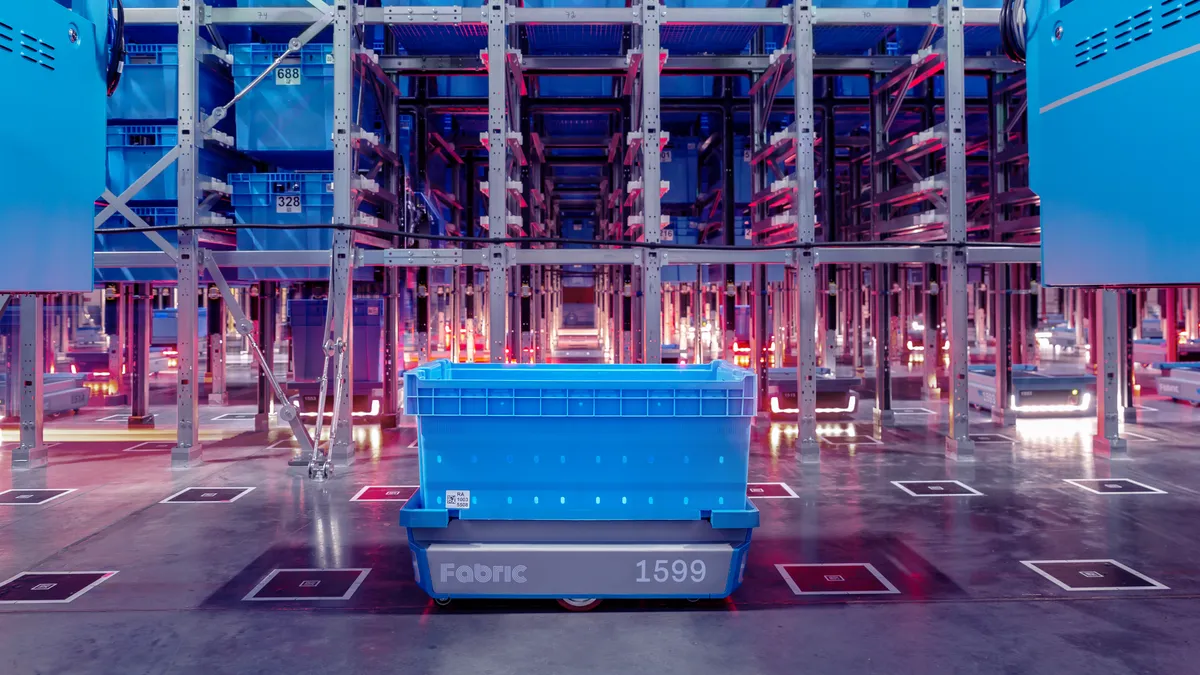Dive Brief:
- Micro-fulfillment technology developer Fabric is laying off about 40% of its global staff, the company confirmed Wednesday in an emailed statement.
- Fabric CEO and co-founder Elram Goren has resigned as part of the restructuring, designed to allow the warehouse automation specialist to focus on selling hardware and software instead of relying on a service- and network-oriented business strategy.
- Fabric is slimming its operations as a growing number of technology firms retool in the face of a rapidly deteriorating investment climate.
Dive Insight:
Fabric’s disclosure that it is shedding a large percentage of its workforce follows the company’s announcement last fall that it had raised $200 million from investors at a valuation of more than $1 billion amid burgeoning demand for automated e-commerce fulfillment technology.
The startup, which is based in New York and also has offices in Tel Aviv, Israel, and Atlanta, said when it announced the funding round in October that it had a staff of more than 300 people. The company said at the time that it planned to use the money to construct facilities across the United States.
TechCrunch earlier reported Fabric’s decision to shift course and reduce the size of its workforce.
In the statement, Avi Jacoby, who has replaced Goren as Fabric’s chief executive, said that while the company remains convinced that the market for mechanized fulfillment equipment remains strong, retailers have indicated they want to control their own facilities instead of depending on an outside provider.
“Fabric’s purpose hasn’t changed. On-demand fulfillment is on the rise, and we are well positioned to lead the industry with robotic technology to empower brands to exceed their consumers’ expectations from click to doorstep,” Jacoby said, adding that Goren will remain with Fabric as a strategic advisor.
A retired brigadier general who served in the Israeli Air Force, Jacoby arrived at Fabric in 2018 as chief of staff and then became CEO of the Israel market for the company. He became chief operating officer of Fabric in 2020.
Fabric’s strategy has evolved quickly. In April, it announced that it had opened a micro-fulfillment center in Dallas and expected to double the size of its MFC network in the United States by the end of the year. Fabric added in that announcement that it intended those facilities to enable it to make deliveries to almost 90% of U.S. consumers in two days or less.
Founded in 2015, Fabric counts food retailers like Walmart and Ahold Delhaize-owned e-grocer FreshDirect as customers. In July 2021, Fabric entered a multi-year partnership with Instacart to provide automated fulfillment services to retailers, with Instacart saying it intended to work with Fabric on “concept pilots” with grocery retailers “over the coming year and beyond.”
Jeff Wells contributed to this story.













